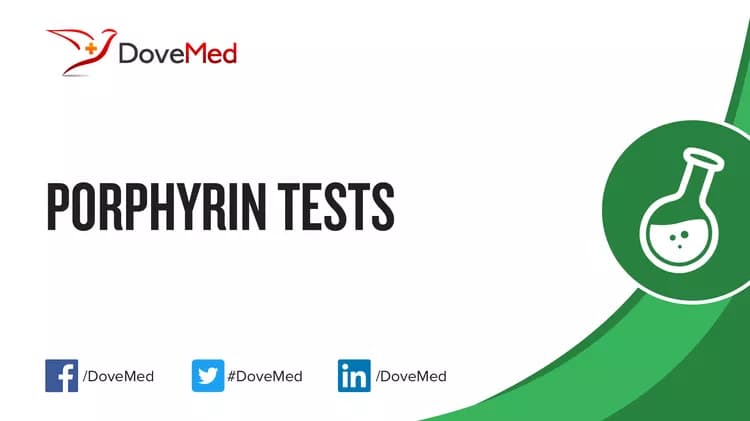What are the other Names for this Test? (Equivalent Terms)
- Coproporphyrin Test
- Protoporphyrin Test
- Uroporphyrin Test
What is Porphyrin Tests? (Background Information)
- Oxygen is extremely important in sustaining human life. It is so important that one-third of the body’s 75 trillion cells are red blood cells, which are vehicles for oxygen transport
- The so-called “bed” of these vehicles, the storage part, is a protein called hemoglobin. Each red blood cell is 97% hemoglobin, implying that there is a tremendous amount of hemoglobin needed at any one time - around 0.75 kg
- Manufacturing hemoglobin and related proteins, involves a class of molecules, called porphyrins. An accumulation of porphyrins may indicate that the assembly-line production of hemoglobin is disrupted. This mainly occurs due to enzyme malfunction, either because of genetic disorders, or toxicity caused by heavy metals
- There are many different kinds of porphyrins:
- Protoporphyrin is detected in the feces
- Uroporphyrin in the urine
- Coproporphyrin in both the urine and feces
- The blood also contains porphyrins
- Porphyrins are toxic at high concentrations; porphyrias are disorders resulting from excess porphyrin buildup. Porphyrias are either inherited or acquired
- They can cause neurological and dermatological abnormalities, depending on the site of porphyrin accumulation. Different symptoms are felt in each case, since porphyrins exhibit different chemical properties, depending on their environment
- A Porphyrin Test measures porphyrin levels in any of the bodily substances (blood, feces, or urine) and is used to aid in the diagnosis of porphyria
What are the Clinical Indications for performing the Porphyrin Tests?
Following are the clinical indications for performing a Porphyrin Test:
- Exposure to heavy metals
- Nausea and vomiting
- Abdominal pain
- Hallucinations
- Disruptions to cognition and thinking
- Tingling in extremities
- Appearance of new skin pigmentation
- Discolored feces
How is the Specimen Collected for Porphyrin Tests?
Sample required: Blood, feces, or urine sample
Process:
- Insertion of a needle into the arm vein (blood)
- Rectal swab or examination of stool (feces)
- Urine test (urine)
Preparation required: None
What is the Significance of the Porphyrin Tests Result?
Elevated porphyrin levels in bodily tissues may indicate:
- Acquired porphyria, which may be treated by removing the cause (occurred most likely due to a heavy metal)
- Genetic porphyria, which may be treated by medications, in order to alleviate symptoms
The laboratory test results are NOT to be interpreted as results of a "stand-alone" test. The test results have to be interpreted after correlating with suitable clinical findings and additional supplemental tests/information. Your healthcare providers will explain the meaning of your tests results, based on the overall clinical scenario.
Additional and Relevant Useful Information:
- A porphyrin precursor, porphobilinogen (PBG), is often tested using a similar methodology
- Genetic tests can screen individuals for predisposition to faulty enzymes
Certain medications that you may be currently taking may influence the outcome of the test. Hence, it is important to inform your healthcare provider, the complete list of medications (including any herbal supplements) you are currently taking. This will help the healthcare provider interpret your test results more accurately and avoid unnecessary chances of a misdiagnosis.
Related Articles
Test Your Knowledge
Asked by users
Related Centers
Related Specialties
Related Physicians
Related Procedures
Related Resources
Join DoveHubs
and connect with fellow professionals


0 Comments
Please log in to post a comment.